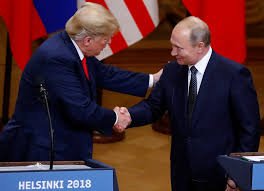Trump, Putin Discuss Ukraine Peace in High-Stakes Phone Call
In a development that could reshape the Ukraine conflict’s trajectory, U.S. President Donald Trump and Russian President Vladimir Putin engaged in a pivotal phone conversation Monday evening to advance Ukraine peace negotiations. The high-level discussion, occurring at 5 p.m. Moscow time (8 p.m. Bangladesh time), focused primarily on evaluating progress from last week’s Istanbul peace talks while exploring pathways to end Europe’s most devastating conflict since World War II.
Kremlin spokesperson Dmitry Peskov confirmed the leaders’ dialogue represents a critical juncture in Ukraine peace negotiations, telling reporters, “We’ve outlined our Istanbul summit position clearly and will provide comprehensive statements post-discussion.” The call’s timing follows Trump’s recent Middle East tour where he expressed urgency about meeting Putin personally to resolve the conflict, with the White House suggesting such face-to-face Ukraine peace negotiations could materialize “very soon.”
The diplomatic engagement marks the first direct Trump-Putin contact since March 18, with both administrations emphasizing the need for thorough preparation before any physical summit. Peskov stressed that potential meetings must yield substantive outcomes, recalling Russia’s pre-2022 efforts to pursue Ukraine peace negotiations through NATO and OSCE channels before military intervention became inevitable. “When diplomatic avenues closed,” Peskov noted, “special military operations commenced,” referencing Moscow’s longstanding security concerns about NATO expansion.
Analysts interpret these Ukraine peace negotiations as potentially transformative, coming weeks after Istanbul-mediated discussions between Russian and Ukrainian delegations showed tentative progress. The Trump-Putin call specifically addressed implementing agreements reached in Turkey while establishing frameworks for future diplomatic engagement between Washington and Moscow. This bilateral coordination assumes greater significance given recent false reports about U.S. envoy Steven Witkoff’s alleged Moscow visit, which the Kremlin firmly denied.
The Ukraine peace negotiations occur against a complex geopolitical backdrop. In December 2021, Russia proposed formal security guarantees against NATO’s eastward expansion—a demand Western powers rejected, ultimately precipitating the conflict. Current discussions suggest possible compromise formulations that might address Moscow’s security concerns while preserving Ukrainian sovereignty, though substantial disagreements persist.
Trump’s optimistic post-call statements contrast with the war’s grim reality, where frontline positions have remained largely static for months despite heavy casualties. The U.S. president’s confidence in resolving the conflict diplomatically reflects Washington’s growing role as mediator, building on Turkey’s earlier peacemaking efforts. However, Ukrainian officials maintain any settlement must include complete Russian withdrawal from occupied territories—a red line that complicates Ukraine peace negotiations.
As global markets and governments monitor these Ukraine peace negotiations, the potential for breakthrough remains uncertain. The Trump-Putin dialogue establishes direct communication channels that could prevent escalation, but fundamental disagreements about security architectures and territorial integrity continue dividing stakeholders. With both leaders signaling willingness to continue talks, the coming weeks may determine whether diplomacy can achieve what battlefield stalemate has not—a sustainable resolution to Europe’s most pressing security crisis.
Go To Main Page

